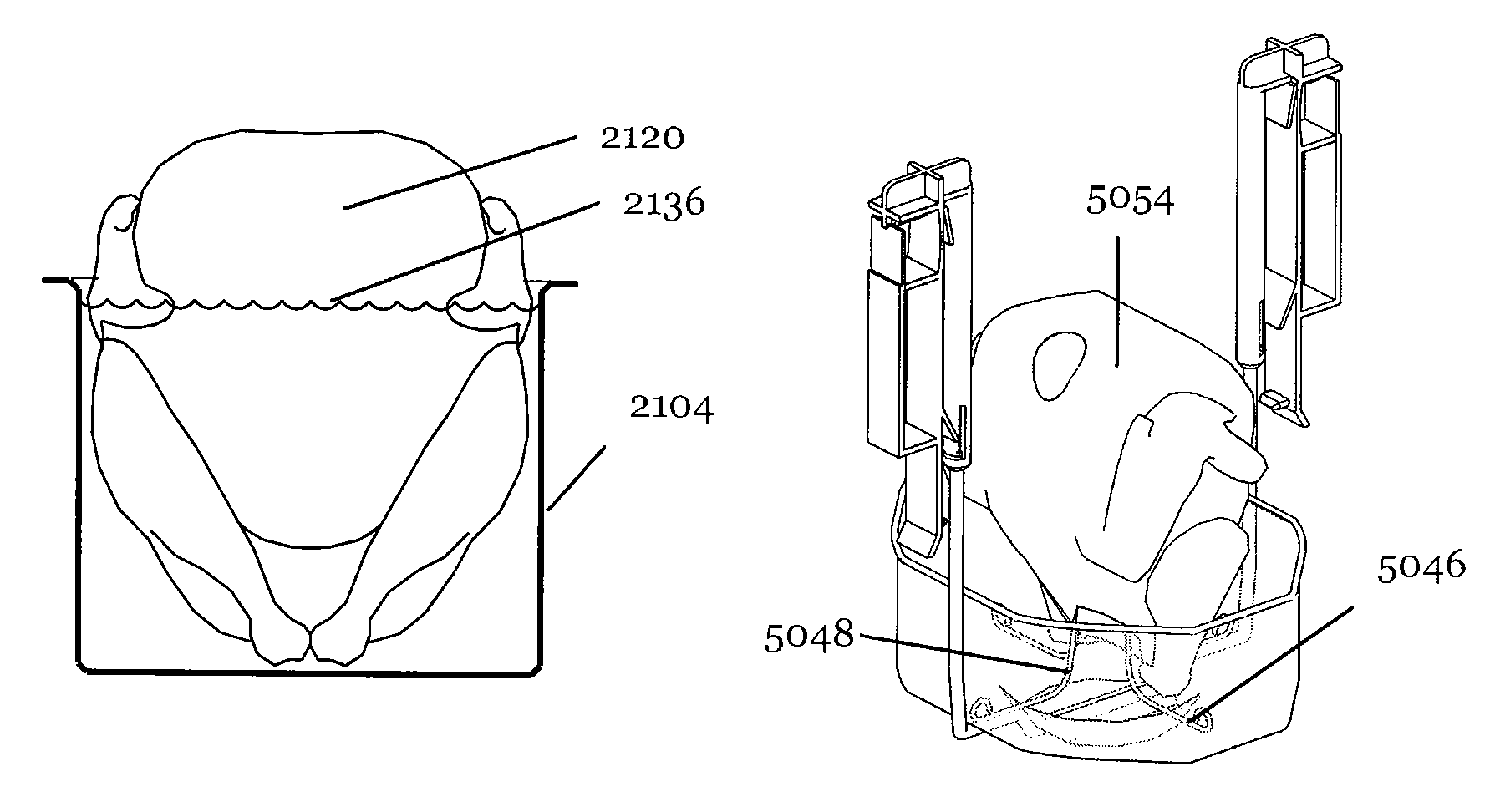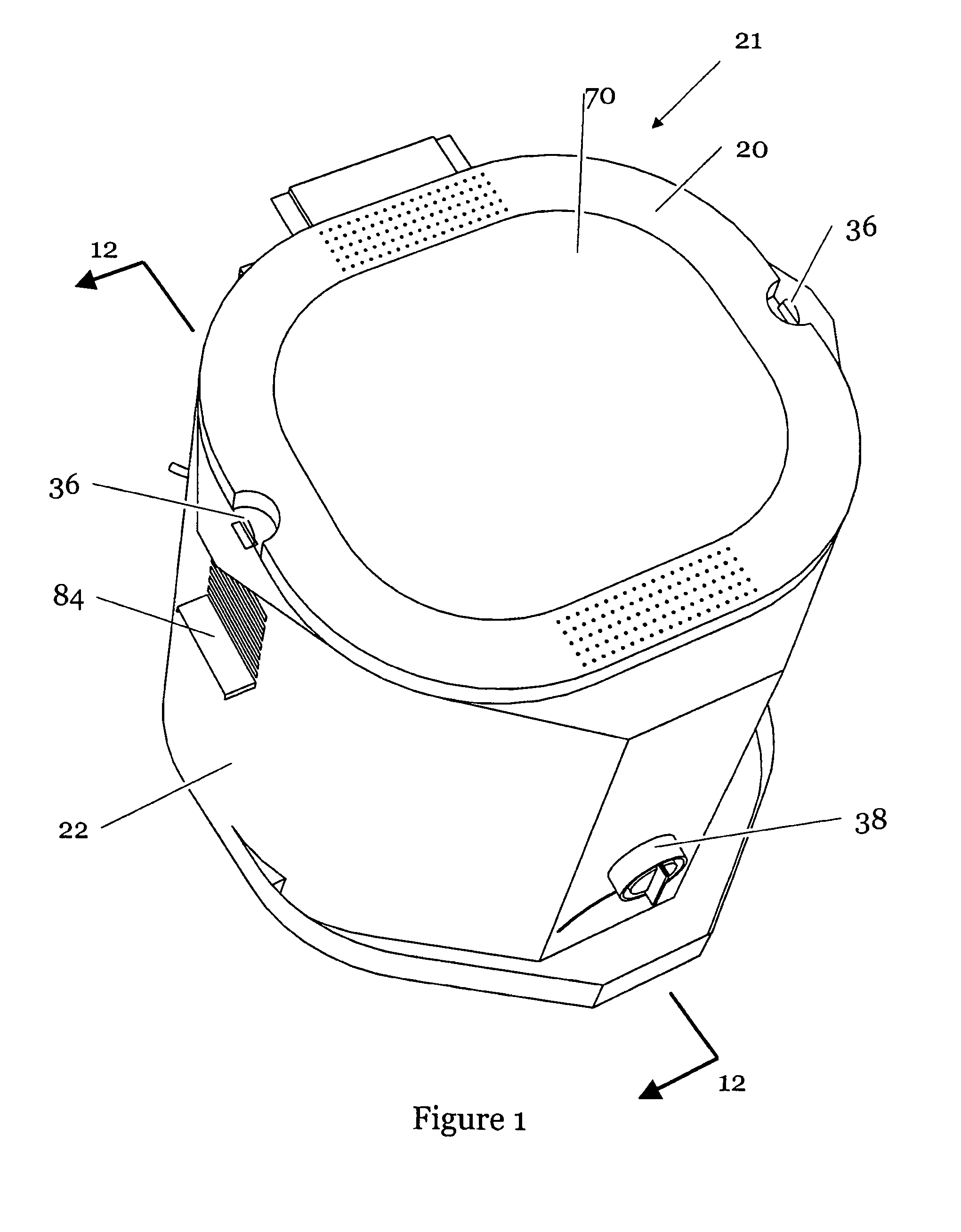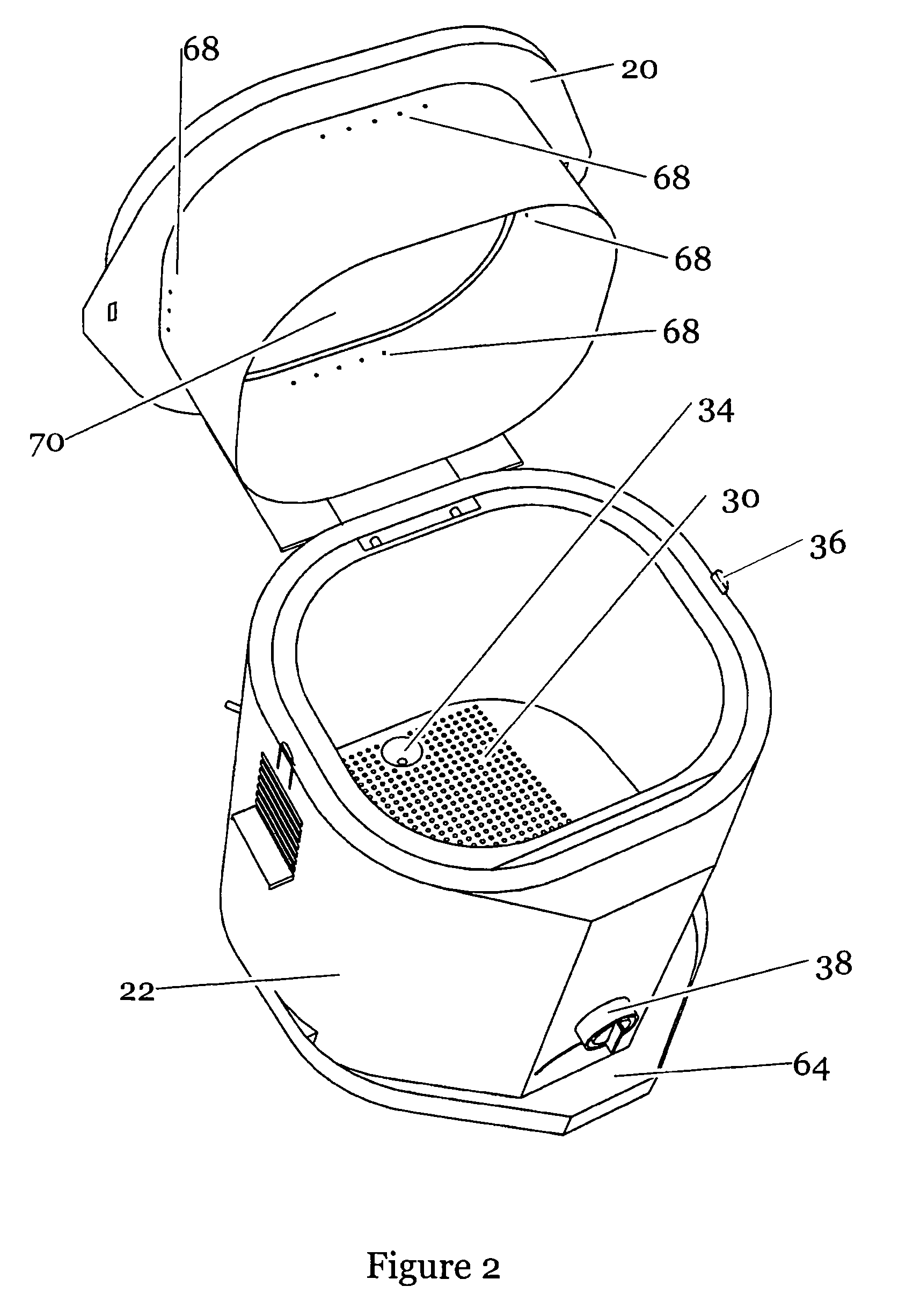Device to efficiently cook food
a technology of efficient cooking and food, which is applied in the field of efficient cooking devices, can solve the problems of inconvenient use of conventional devices, increased waiting time of users, and limited capacity of countertop devices for home us
- Summary
- Abstract
- Description
- Claims
- Application Information
AI Technical Summary
Benefits of technology
Problems solved by technology
Method used
Image
Examples
second embodiment
[0330]FIGS. 17 and 18 illustrate an alternative or second embodiment of the cooking device 72 as constructed in accordance with the principles of the invention. Some features from the first embodiment cooking device described above and illustrated in FIGS. 1 to 13 are incorporated into second alternative embodiment 72, and will be obvious to those knowledgeable in the art.
[0331]The second embodiment cooking device 72 comprises a food support vessel 92 that is disposed within a cooking vessel 94. As best shown in FIG. 18, in an example embodiment, the cooking vessel 94 and / or the food support vessel 92 are configured having one end that is slightly wider that an opposite end. In a preferred embodiment, the cooking vessel and food support vessel are each configured having one end slightly wider than an opposite end to better and more efficiently accommodate placement of a turkey therein. Configuring the cooking vessel and food support vessel in this manner helps reduce the overall siz...
third embodiment
[0333]FIGS. 19 to 36 illustrate a third embodiment cooking device 200, constructed according to principles of the invention. This third embodiment cooking device shares some of the advantages and features of the first two embodiment cooking devices disclosed above. The third embodiment cooing device 200 generally includes an outer housing 202 having a base support 210 positioned at a closed outer housing end. The closed base support 210 may comprise a plurality of holes disposed therethrough to facilitate a convective flow of air within the outer housing.
[0334]A cooking vessel or cooking liquid bucket 218 is statically disposed within a cavity of the outer housing 202 and is sized and configured to accommodate a volume of cooking liquid therein. The cooking vessel 218 is supported by the outer housing base support 210. A food support vessel or food holding basket 220 is disposed within the cooking vessel 218, and an oil straining screen 220 is interposed between the food support ves...
fourth embodiment
[0355]FIGS. 41 to 57 illustrate a fourth embodiment food cooking device 301, constructed in accordance with the principles of this invention, generally comprising an outer housing 316 and a lid 306 that is movably position over a open end of the outer housing. FIGS. 39, 40, and 41 show forward perspective views of the cooking device 301 with the lid 306 in different positions. In FIG. 39, the device 301 is shown with the lid 306 in an inverted position to minimize the space needed for storage. In FIG. 40, the device 301 is shown with the lid in a raised position for loading and unloading foods. In FIG. 41, the lid is shown in a closed position for cooking a food article. The lid 306 may also be removed completely at any time, by simply unlatching and lifting it away from the outer housing 316.
[0356]The lid 306 is specially constructed having a wall section that projects outwardly a distance from a lip that extends around a peripheral edge of the lid and that is configured to contact...
PUM
 Login to View More
Login to View More Abstract
Description
Claims
Application Information
 Login to View More
Login to View More - R&D
- Intellectual Property
- Life Sciences
- Materials
- Tech Scout
- Unparalleled Data Quality
- Higher Quality Content
- 60% Fewer Hallucinations
Browse by: Latest US Patents, China's latest patents, Technical Efficacy Thesaurus, Application Domain, Technology Topic, Popular Technical Reports.
© 2025 PatSnap. All rights reserved.Legal|Privacy policy|Modern Slavery Act Transparency Statement|Sitemap|About US| Contact US: help@patsnap.com



